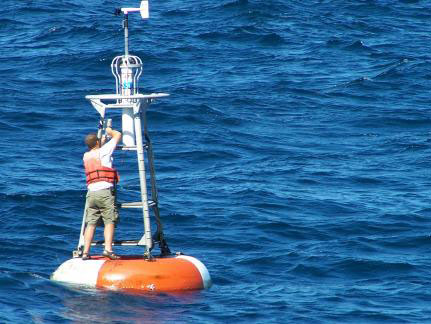 August 1, 2016 - With its latest update, NOAA's International Comprehensive Ocean–Atmosphere Data Set Release 3.0 (ICOADS R3.0) now incorporates a wide range of new and improved data and metadata sources. This new release also fosters closer integration with the oceanographic community by extending ICOADS observations to include near-surface variables—like salinity, nutrients, and dissolved carbonate chemistry—for the first time.
August 1, 2016 - With its latest update, NOAA's International Comprehensive Ocean–Atmosphere Data Set Release 3.0 (ICOADS R3.0) now incorporates a wide range of new and improved data and metadata sources. This new release also fosters closer integration with the oceanographic community by extending ICOADS observations to include near-surface variables—like salinity, nutrients, and dissolved carbonate chemistry—for the first time.
The Marine Data Center at FSU's Center for Ocean-Atmopsheric Prediction Studies has contributed to ICOADS R3.0. A manuscript (ICOADS Release 3.0: a major update to the historical marine climate record) detailing the new release and the contributions by the MDC (particularly providing a subset of high-quality research vessel observations from the SAMOS initiative) was just published in early view by the International Journal of Climatology. Mr. Shawn Smith, the Marine Data Center director, is a co-author on this manuscript and is the lead author of the full ICOADS release 3.0 documentation. Jocelyn Elya, MDC lead programmer, developed the software to support submitting SAMOS data into this release of ICOADS.
ICOADS is the world’s most extensive surface marine meteorological and oceanographic data collection. Building on extensive national and international partnerships, ICOADS provides users with easy access to many different data sources in a consistent format. Data sources range from early non-instrumental ship observations to more recent measurements from automatic systems, such as moored buoys and surface drifters.
ICOADS supports a variety of climate products including the global surface temperature record, winds, pressure, humidity, clouds, and estimates of air–sea exchange. We also use it to develop many other well-used sources of marine climate information, including reanalyses and gridded analyses of sea surface temperature.











